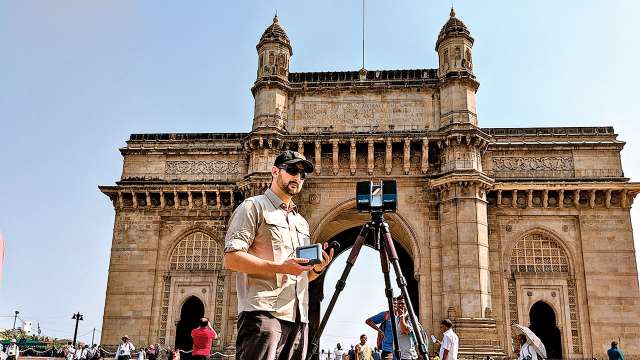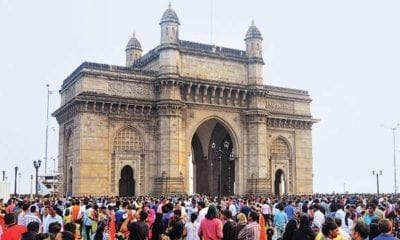Mumbai
Mumbai’s Gateway of India becomes first structure in State to be digitally preserved

Mumbai’s iconic Gateway of India will become the first structure in the state to be digitally preserved in high-resolution 3D model format. The digital scanning and archiving work for this project is already underway and is being carried out by CyArk — an international non- profit organisation in coordination with Directorate of Archaeology and Museums and other state authorities.
As per experts, this digital preservation has proved to be of great use in case of natural calamities or even natural degradation causing any damage to historical structures. Using the 3D model, restoration and conservation work can be undertaken in future.
Explaining the procedure for gathering data required to digitally map the structure, Christopher Dang, Field Director, CyArk said that they were using high-resolution cameras, LiDAR (laser) scans as well as drones to digitally record the surface data of not just the structure but also every nook and corner.
“We will be taking nearly 5000 images of this structure from all possible angles. In the last three days, we have taken LiDar scans from 170 spots all around the structure including the interiors of the domes, staircases and expect to take another 50 or 80 more in the coming days. Apart from this, aerial images are being clicked by drones too,” Dang said adding that they are expecting to collect a whopping 0.75 terabyte (750Gb) of data.
Dang further informed they will finish gathering all the required data in five days post which the work of putting all the pieces together using software tools would begin.
“First we would use the LiDAR scans to create a 3D model without surface photographs of the entire site. Once it’s found to be accurate, the photographs will be placed based on location recorded making the photo-real 3D model ready,” informed Dang adding that they would then provide all these images and the model to the Directorate of Archaeology and Museums.
The task of data gathering also has its share of challenges and the most obvious being the curiosity of tourists who are always present in large numbers around the Gateway. “When we place the LiDAR for scans most often people come and stand infront of it to see what is going on. Thus, we have to repeat the process. Also, since the site is also close to several vital installations and important structures, we have to be careful. Hence, we work closely with all authorities including Mumbai Police and the Navy,” said Dang adding that the entire project has been funded through corporate philanthropy.
Dr Tejas Garge, Director, Directorate of Archaeology and Museums, Government of Maharashtra said, “The proposed project is truly beneficial for creating an easily accessible digital database of the monument, ensuring its enhanced protection and the formulation of comprehensive conservation policies.”































